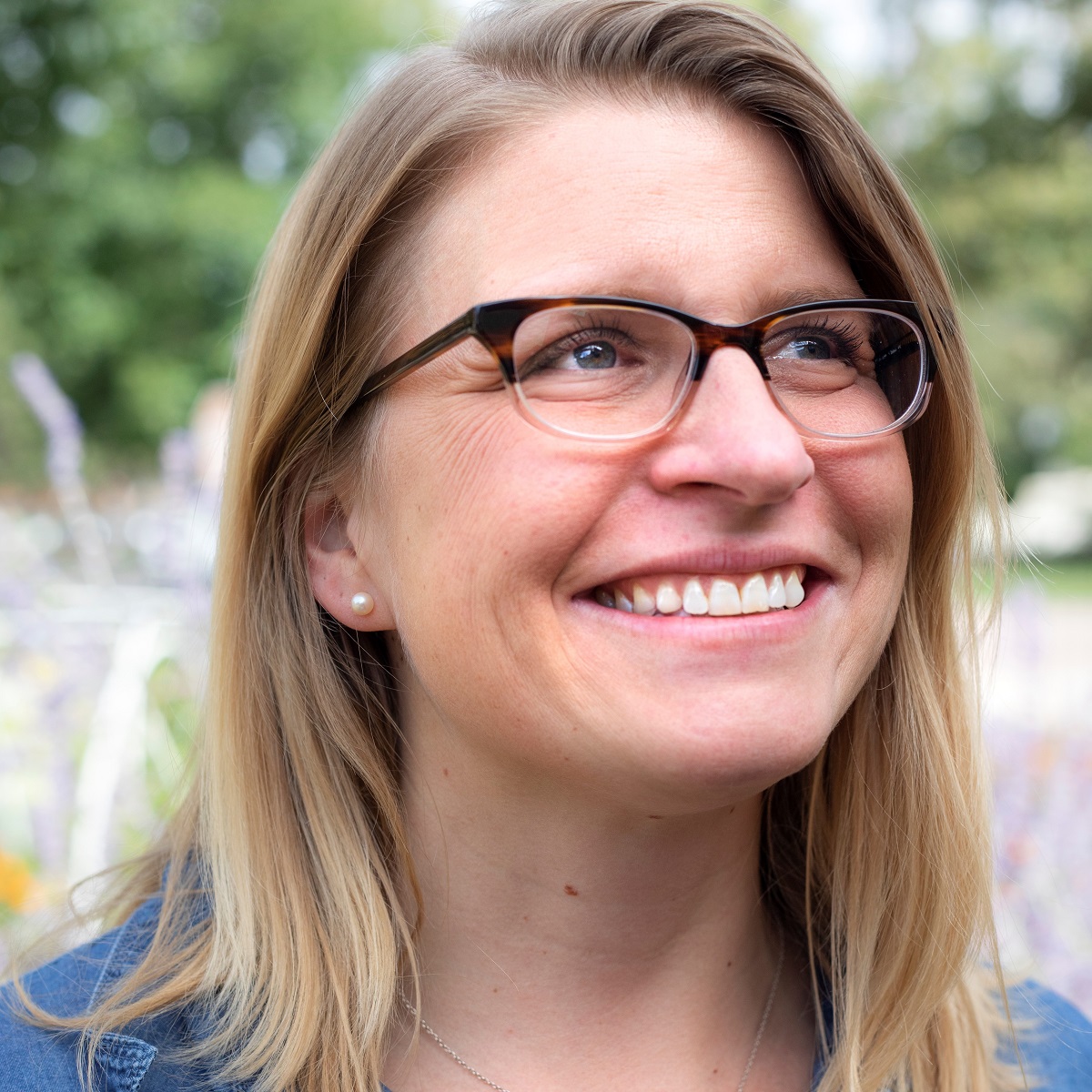Colorado College Assistant Professor of Environmental Science Rebecca Barnes has received an $849,234 CAREER grant from the National Science Foundation for a project titled "The Legacy of Wildfire on Carbon Watershed Biogeochemistry." The highly prestigious award, from NSF's Faculty Early Career Development Program, is CC's first CAREER grant.
In the project summary Barnes submitted to the NSF, she notes that wildfires occur more regularly and with greater severity throughout the Western United States. In addition to threatening residents' safety, fires also change ecosystems. "Severe fires release large amounts of carbon into the atmosphere, contributing to climate change. Wildfires also change the way carbon and water move and are stored within ecosystems," says Barnes.
Her project aims to understand how severe fire alters the movement and fate of carbon from land to water over multiple timescales and forest types. "Field observations, laboratory experiments, and computer models will quantify the size and fate of terrestrial and aquatic carbon pools. Results will improve our ability to understand the feedbacks between a changing climate, increasing wildfires, and forest carbon cycling," says Barnes.
The five-year CAREER award, which begins in May, will provide a multitude of research opportunities for students both within and outside the classroom. Barnes plans to create a partnership between Colorado College and two large, research-focused universities - the University of Utah and Texas A&M University - with the project involving more than 75 undergraduate students and two postdoctoral scholars.
Barnes' proposal notes that severe fire results in large shifts in terrestrial ecosystem carbon stocks and alters watershed hydrology, shifting flow paths and thus the sources and processing of organic matter to aquatic ecosystems. Currently, terrestrial ecosystem carbon models do not adequately incorporate inland waterways, resulting in a significant overestimate of net ecosystem production, that is, the size of the terrestrial carbon sink.
CC Provost Alan Townsend says that CAREER proposals are one of the most prestigious and important grants awarded by the National Science Foundation.
"I know this quite well from having directed the division from which Becca's award comes. Critically, these grants must hit high marks for both research excellence and educational creativity and commitment. For anyone to land one is a significant, career-defining moment, but to do so from a small liberal arts college is even more impressive," says Townsend. "This absolutely reflects not only her excellent research but her unwavering commitment to students."
The proposed work builds on three summers of student-collaborative results funded by the Dean's Office, the Grant Lyddon Fund, the Jackson Fellowship, and the SEGway program, which aims to help faculty develop more competitive grant proposals. Results from the work, conducted within the Hayman burn scar, near Deckers, Colorado, as well as within other severely burned sites across the state, will be shared with the Colorado Springs community through an outreach-oriented exhibit at the Fine Arts Center at Colorado College via a partnership with an artist.
As a biogeochemist, Barnes is interested in how understanding how aquatic and terrestrial ecosystems process nitrogen and carbon. As this project shows, she is particularly interested in unraveling how disturbances such as nitrogen deposition, land use change, warming, fire, etc., affects these critical global cycles.
Barnes, who joined the Colorado College faculty in 2014, earned a Ph.D. in Forestry and Environmental Studies from Yale University, master's degrees in environmental science and public affairs from Indiana University's School of Public and Environmental Affairs, and a bachelor's degree in geology from Oberlin College. Her research reflects this interdisciplinary training, with her work centered at the intersection of society, hydrology, and geochemistry.
Barnes was recognized for her work in 2019 with the Sulzman Award for Excellent in Education and Mentoring from the American Geophysical Union. She has served in the leadership of the Earth Science Women's Network since 2012, developing and facilitating professional development trainings; was co-principal investigator of a NSF IUSE award in 2014-2019 that developed evidence-based mentoring programs that increase the retention of women in the geosciences (PROGRESS); and is a co-principal investigator of the ADVANCEGeo Partnership aimed at improving workplace climate by addressing harassment and bullying in the geosciences.






